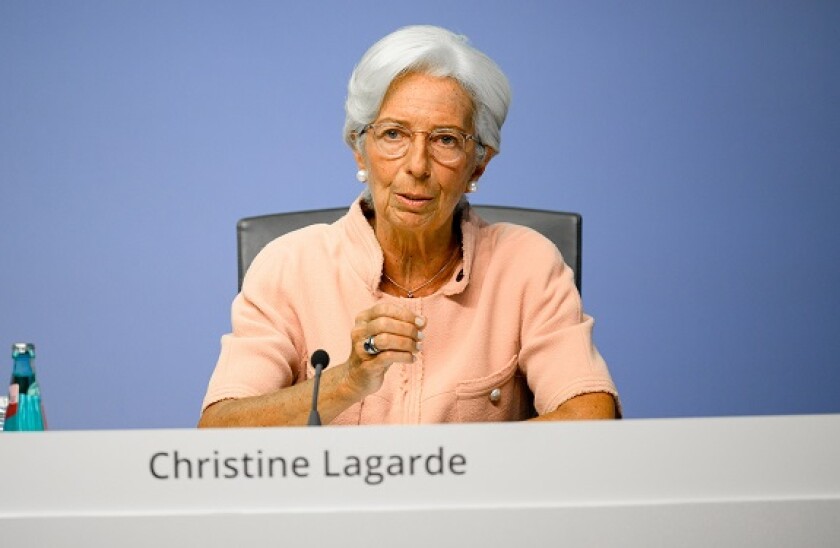That decision, announced on Tuesday, will give further momentum to the small but growing SLB market. For the uninitiated, an SLB issuer commits to hit a sustainability target and pays investors compensation, such as a coupon step-up, if it fails to meet it.
The ECB's move will not necessarily shift capital towards sustainable causes in itself, given that brown companies can issue SLBs, and the central bank does not care whether a company actually meets its targets.
But it is the ECB's first tentative push to use its mighty market power to favour sustainable finance initiatives, an issue that president Christine Lagarde had already discussed.
And let's be clear: the ECB is picking favourites here. The pool of outstanding SLBs is tiny, so it is not as if they are required for the stated purpose of the bank's operations. The ECB also makes eligibility dependent on targets relating to either the EU Taxonomy or the United Nations' Sustainable Development Goals.
Meanwhile, Sarah Breeden of the Bank of England said on Thursday that her organisation is considering applying a condition like climate-related disclosure on eligibility for its corporate bond purchase programme.
These steps are small. But once central banks have accepted sustainability as part of their mandate in purchase programmes, logic will push them further. It may be politically infeasible for them to cut out funding for brown assets, but they will find more ways to favour green.

